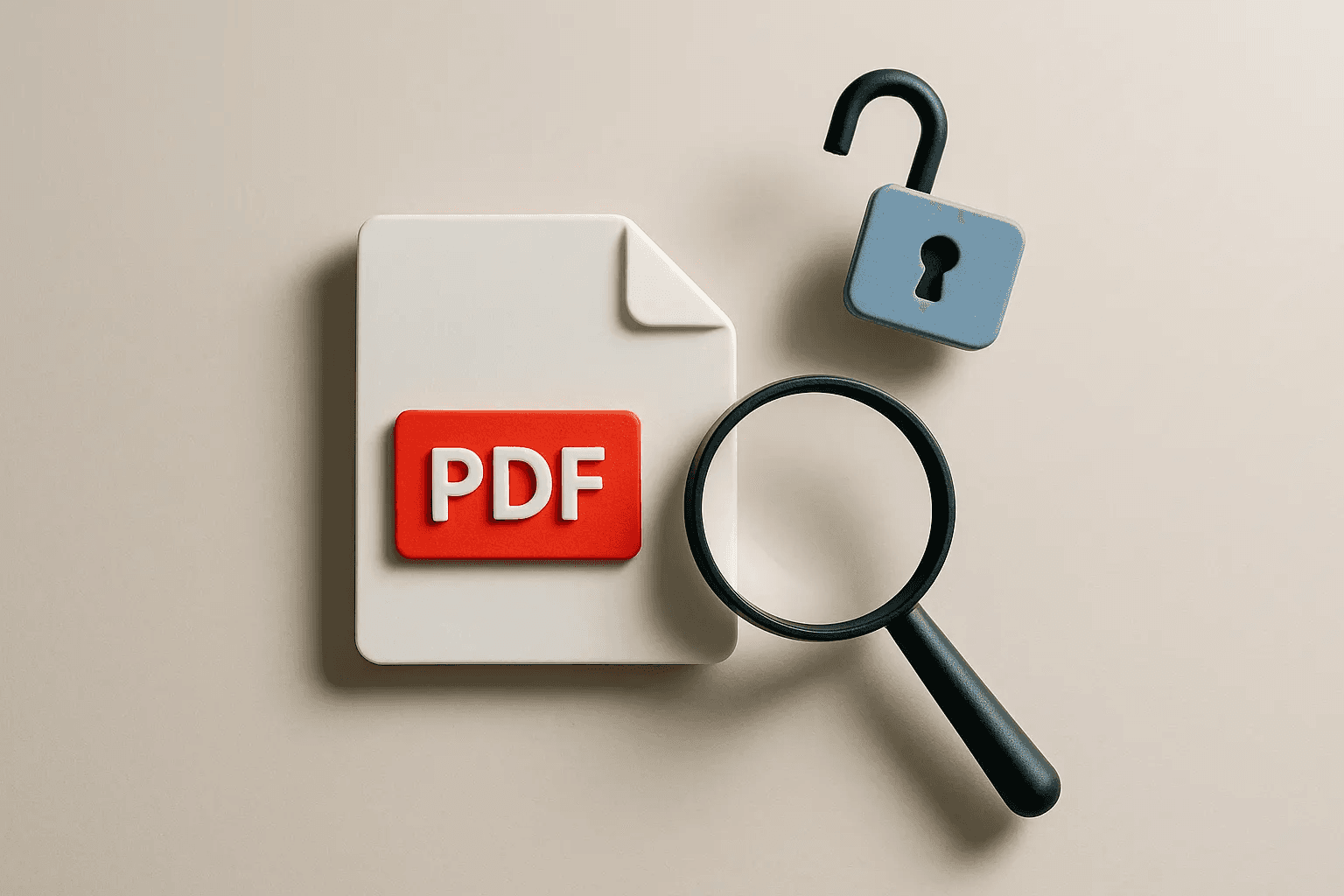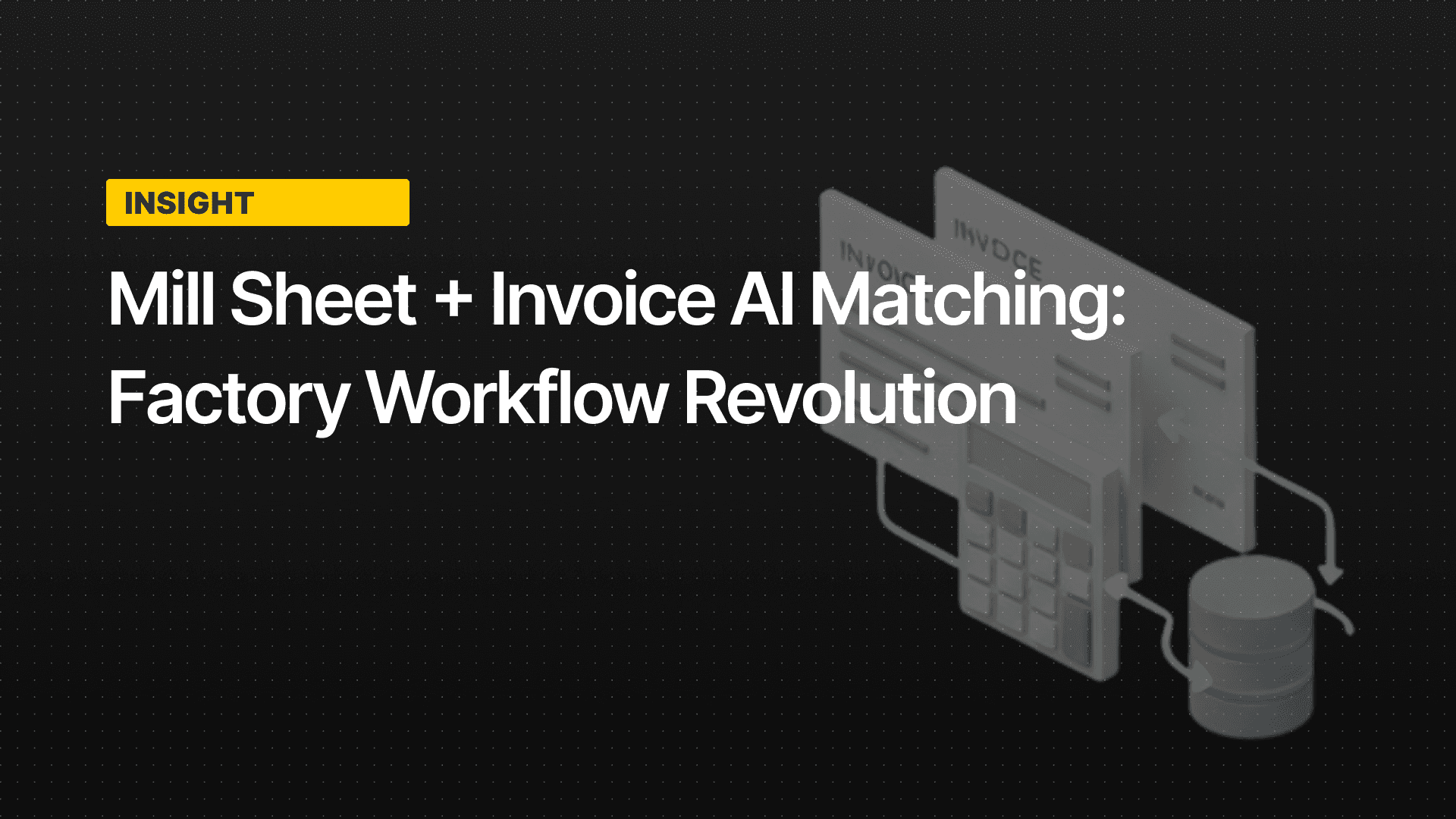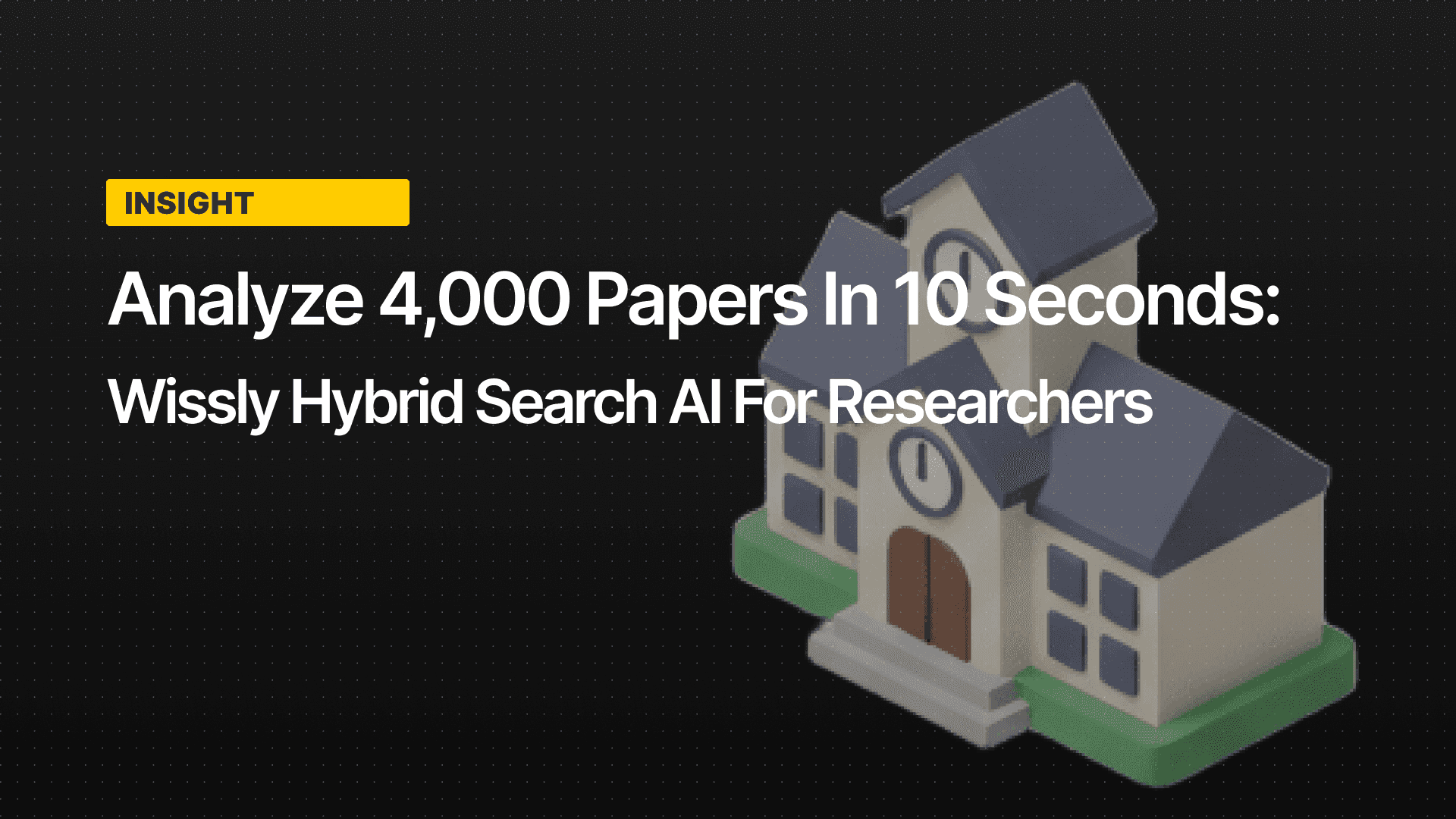Insight
Unlocking PDF Insights with AI: A Comprehensive Guide to PDF Search AI Tools
Sep 9, 2025
Why PDF Search Needs AI
The limits of Ctrl+F in complex, multi-page documents
Anyone who has searched through a long PDF using Ctrl+F knows the limitations—missed synonyms, non-standard layouts, and irrelevant keyword matches. Traditional search tools fall short in legal documents, research papers, compliance manuals, and enterprise handbooks, where understanding context and structure is vital. The result is wasted time and reduced accuracy.
From keyword matching to AI-powered document conversations
PDF search has evolved beyond simple text scanning. Modern AI tools now let users “converse” with a document—asking questions in natural language and receiving precise, source-backed answers. This transition unlocks insights hidden in dense content and makes high-volume document review more efficient and human-centric.
Enterprise needs: privacy, scalability, and trust in results
For legal, compliance, and research teams, results must be both correct and verifiable. AI-powered search tools need to meet enterprise-grade requirements like audit trails, on-premises deployment, support for structured layouts, and integration with existing data governance policies.
Conversational PDF AI Tools: The Current Landscape
PDF.ai, ChatPDF, AskYourPDF: Upload, chat, cite
These consumer-grade tools allow users to upload PDFs and engage in chat-based querying. They’re useful for quick reviews and small-scale use but may lack enterprise-level features like granular access control, offline support, or integration with sensitive workflows.
DocAnalyzer.ai: Multilingual, real-time summaries and answers
DocAnalyzer provides natural-language answers across multilingual documents. It’s useful in academic and legal contexts where documents span multiple languages and complex phrasing. Real-time citation linking ensures users can verify the source of each AI-generated response.
Adobe Acrobat AI: Multi-document querying with citation tracking
Adobe’s AI capabilities now support conversational search across multiple documents, combined with structured response formatting and citation trails. This feature is especially useful for teams reviewing regulatory materials or lengthy document sets.
Emerging Enterprise-Grade Features
Chat across hundreds of PDFs at once
Enterprise teams increasingly need to extract insights from document collections—not just single files. Leading PDF AI systems now support multi-document querying, enabling complex Q&A and clustering of related content across thousands of pages.
Real-time citations and hallucination control
Trust in AI requires transparency. Newer tools emphasize traceability by highlighting specific text passages in response to a query, minimizing the risk of hallucinated answers and making verification simple.
Workspace integrations (e.g., Google AI Mode, Chrome extensions)
Seamless workflow matters. Tools that integrate directly with Google Workspace, Microsoft Office, or browser extensions allow users to bring AI-powered search directly into their daily productivity stack, reducing tool switching and improving adoption.
Open-Source & Research-Driven PDF AI Projects
Docling, MinerU, HURIDOCS layout tools for structured content extraction
These tools help extract structured data—tables, forms, annotations—from complex PDFs. Useful in legal, human rights, and government documentation projects.
OCR and semantic parsing with Apache PDFBox, Poppler, OCRopus
AI tools must understand not just text, but scanned images and irregular layouts. OCR libraries like PDFBox and OCRopus, combined with semantic parsers, unlock accessibility and searchability in previously unusable documents.
Combining classic search with LLMs: Lemur Project, Recoll integrations
Hybrid approaches that fuse vector embeddings with classic keyword search offer both speed and relevance. These integrations provide flexible pipelines for teams experimenting with open-source infrastructure.
On-Prem vs Cloud: Choosing the Right PDF AI Strategy
Sensitive data and compliance requirements
Privacy-first organizations—especially in legal, healthcare, and defense sectors—need PDF AI that runs securely within their infrastructure. On-premises or air-gapped deployment ensures control over data flow and model behavior.
Deployment options for secure, private, and scalable usage
Hybrid deployment options balance security and compute cost, allowing sensitive data to remain local while leveraging cloud resources for large-scale inference. Local-first architectures remain the default in compliance-critical environments.
Tradeoffs between SaaS, hybrid, and local-first implementations
SaaS tools are easy to use but may pose privacy risks. Hybrid solutions offer flexibility, while local-first implementations (like Wissly) provide maximum control and customization at the cost of initial setup effort.
Wissly’s Approach to Secure, Scalable PDF Search
Local-first AI search with GPT + citation + layout understanding
Wissly is designed for sensitive enterprise use cases. It combines LLM-based querying with document chunking, layout awareness (e.g., tables, footnotes), and citation-linked answers—all in a secure, local environment.
Handles PDF, DOCX, HWP and more in high-security environments
Beyond PDFs, Wissly supports DOCX, Hangul HWP, and scanned documents. Its processing engine includes OCR and semantic indexers, built to meet the needs of large enterprises with strict compliance demands.
Accurate summaries, semantic Q&A, and enterprise-grade governance
Wissly outputs structured summaries, traces all AI outputs to source files, and supports access control, audit logs, and version tracking—making it compliant-ready from day one.
Use Cases Across Industries
Legal teams surfacing case law, compliance docs
From contract analysis to regulation tracking, legal teams can save hours by asking natural-language questions across internal PDF repositories.
Researchers conducting literature reviews across academic papers
AI-assisted PDF search helps researchers quickly find relevant passages, compare hypotheses, and generate citations from massive archives of scholarly content.
Product teams integrating PDF AI into internal knowledge systems
Documentation, release notes, and support articles can be indexed and queried through Wissly-powered internal tools, enabling fast, accurate responses to employee or customer queries.
Conclusion: How to Select and Scale PDF Search AI
Must-have features checklist (OCR, traceability, Q&A quality)
Before adopting PDF AI, teams should evaluate tools based on OCR support, multilingual capabilities, Q&A grounding, access control, and integration ease.
Combining open-source robustness with AI performance
Best-in-class solutions merge the customization of open-source tools with the language fluency and summarization power of GPT-based models—delivering flexibility without compromise.
Wissly as your secure gateway to intelligent PDF exploration
Wissly empowers privacy-conscious teams to unlock knowledge from vast PDF archives—securely, intelligently, and at scale.
Recommended Content











